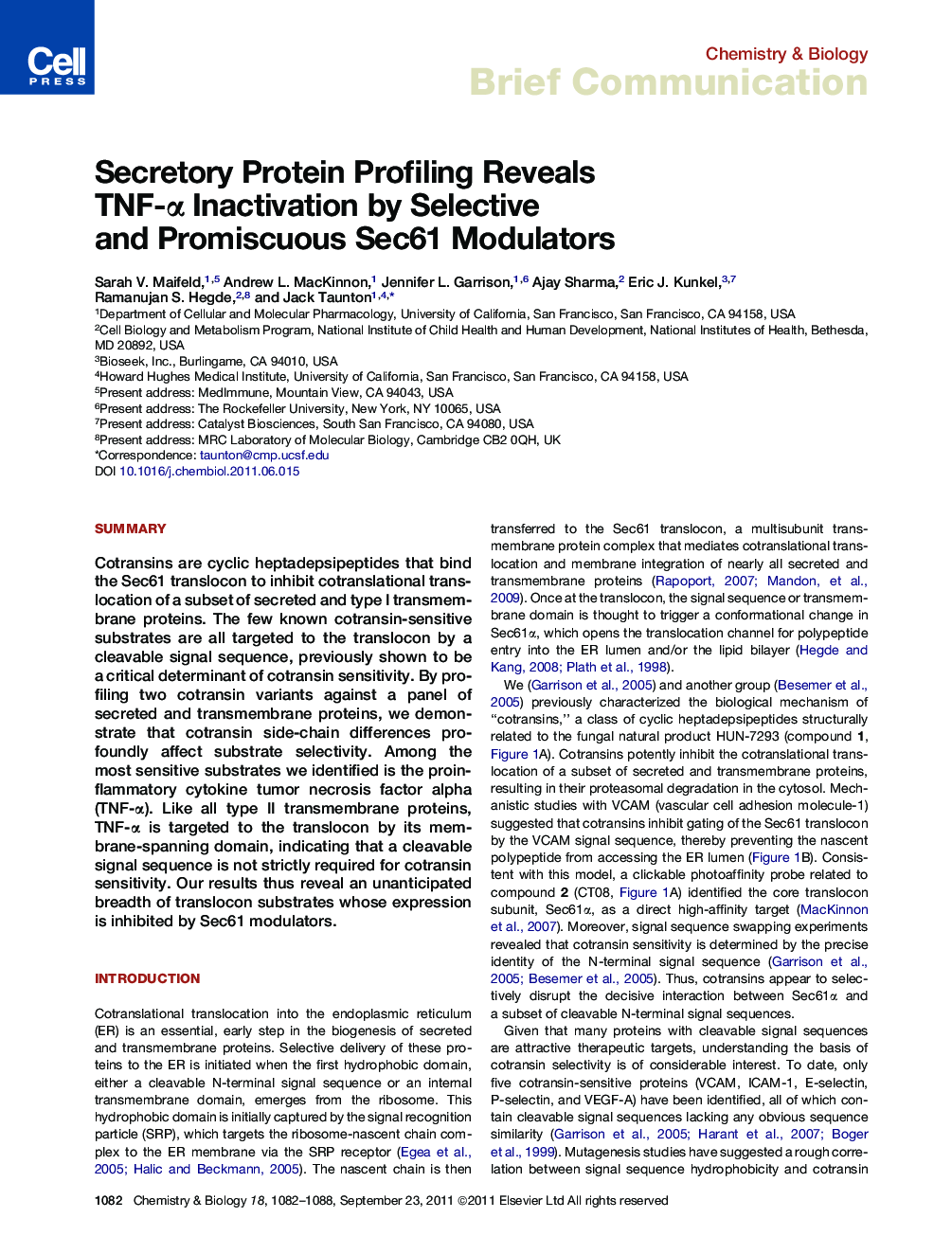| کد مقاله | کد نشریه | سال انتشار | مقاله انگلیسی | نسخه تمام متن |
|---|---|---|---|---|
| 1391387 | 983256 | 2011 | 7 صفحه PDF | دانلود رایگان |

SummaryCotransins are cyclic heptadepsipeptides that bind the Sec61 translocon to inhibit cotranslational translocation of a subset of secreted and type I transmembrane proteins. The few known cotransin-sensitive substrates are all targeted to the translocon by a cleavable signal sequence, previously shown to be a critical determinant of cotransin sensitivity. By profiling two cotransin variants against a panel of secreted and transmembrane proteins, we demonstrate that cotransin side-chain differences profoundly affect substrate selectivity. Among the most sensitive substrates we identified is the proinflammatory cytokine tumor necrosis factor alpha (TNF-α). Like all type II transmembrane proteins, TNF-α is targeted to the translocon by its membrane-spanning domain, indicating that a cleavable signal sequence is not strictly required for cotransin sensitivity. Our results thus reveal an unanticipated breadth of translocon substrates whose expression is inhibited by Sec61 modulators.
Graphical AbstractFigure optionsDownload high-quality image (175 K)Download as PowerPoint slideHighlights
► Two cotransin variants were profiled against a panel of secreted/membrane proteins
► Cotransin structural differences strongly influence substrate selectivity
► TNF-α expression is profoundly inhibited by cotransins
► Cotransins can block translocation of proteins lacking a cleavable signal sequence
Journal: - Volume 18, Issue 9, 23 September 2011, Pages 1082–1088